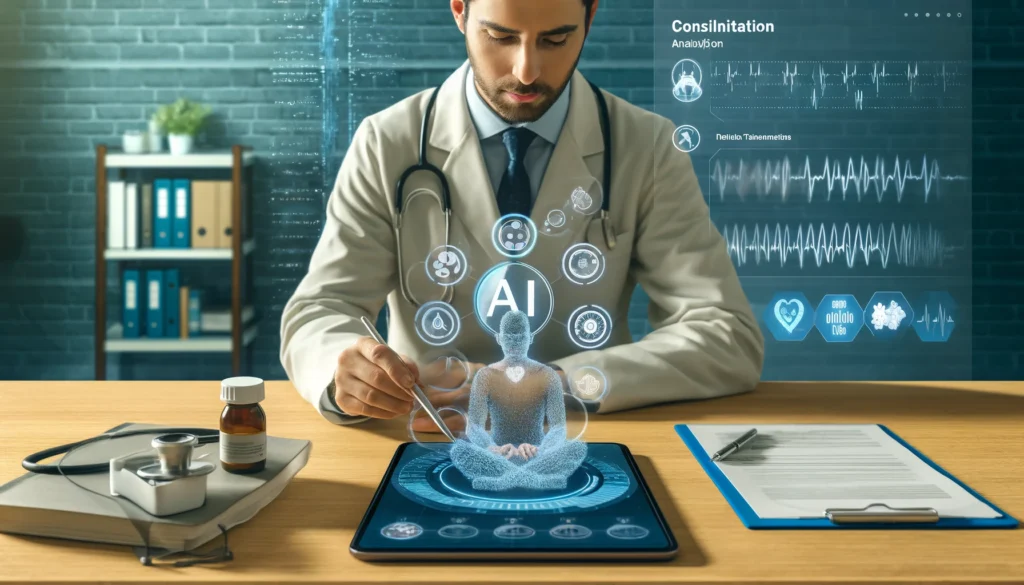As we continue to explore the impact of Artificial Intelligence (AI) across various sectors, one of the most significant areas where AI is making a transformative difference is healthcare. AI’s ability to analyze vast amounts of data quickly and with precision is revolutionizing medical diagnostics, treatment planning, patient care, and management. However, as with all powerful tools, the integration of AI in healthcare also raises important ethical questions and challenges.
Recent Breakthroughs in AI-Enhanced Healthcare
AI technology has led to several innovative improvements in medical care, enhancing both outcomes and efficiency:

- Disease Diagnosis: AI algorithms now diagnose diseases rapidly and accurately. They analyze medical imaging, like X-rays and MRIs, sometimes outperforming human radiologists. Google’s AI system for detecting eye conditions, including diabetic retinopathy, exemplifies such technology.
- Personalized Medicine: AI personalizes treatments by analyzing patient data to predict responses to various treatments. This is crucial in oncology, where AI suggests optimal drug combinations based on genetic profiles.
- Robotic Surgery: AI-enriched robotic systems assist in precise, minimally invasive surgeries, improving surgical outcomes and reducing recovery times.
- Patient Monitoring: AI applications monitor patients continuously with wearable technology that notifies healthcare providers of critical changes, essential for chronic conditions management.
- Drug Discovery: AI speeds up drug discovery, predicting compound effectiveness more rapidly than traditional methods and reducing the time and cost to market. AI’s role in swiftly developing COVID-19 treatments highlighted its potential.

Ethical Debates and Challenges
The integration of AI in healthcare brings about ethical challenges that need addressing:
- Privacy and Data Security: Handling sensitive patient data requires robust security measures to prevent breaches with potentially severe repercussions.
- Bias and Fairness: AI’s decisions can reflect biases from the data it was trained on, possibly leading to inequitable treatment outcomes. It’s vital to eliminate these biases to ensure fair healthcare.
- Transparency and Trust: Effective AI integration requires transparency about how decisions are made, fostering trust among patients and providers. However, the complexity of AI algorithms can make this transparency challenging.
- Job Displacement: There is concern that AI may replace jobs in fields like radiology. It is crucial to use AI to augment rather than replace human expertise.
Conclusion
The potential of AI to enhance healthcare is immense, yet its development must prioritize ethical considerations to ensure safety, equity, and a focus on human needs. Balancing the vast potential of AI with its challenges is essential as it continues to expand within healthcare. This evolution is part of a wider discussion on AI’s impact across various fields, highlighting the importance of carefully managing technology’s integration into our lives.
For further exploration of AI’s impact on our world, follow our ongoing series on AI advancements here.



